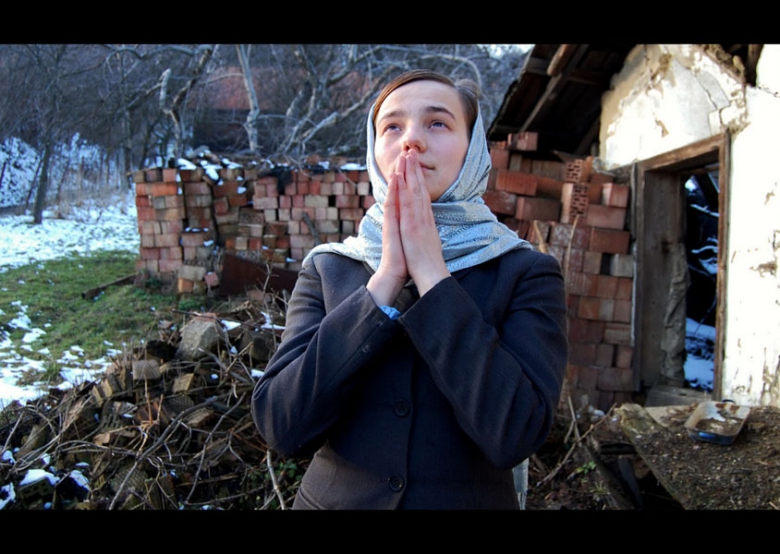Prayer, fasting, and almsgiving are three practices associated with the observance of Great Lent. Another personal practice largely overlooked in our time is the invitation to use “silence” as a way to discover who we really are spiritually as well as physically. “Silence” is also a way to experience God’s presence in our heart.
Keeping silence is one aspect of Great Lent which is seldom explained. Refraining from merrymaking (dancing, parties, the use of musical instruments for entertainment and the like) by the general population of Orthodox Christians is ancient in its origin and was certainly observable in America almost through the middle of the Twentieth Century. Radio technology came into being a little before that, but were generally turned off or given limited usage during Great Lent. The same practice was encouraged in regard to movies and television.
In this twenty-first century, the “horse is really out of the barn” so to speak. I don’t even know where to begin with the many, many new sources of entertainment and information available via various electronic devices and systems. It appears to me that we have ratcheted up the over-abundance of noise, instant interruptive communication, and excessive “blah-blah” that disturbs many homes, workplaces and our educational institutions. All of this now starts very early in one’s life and the children of our time are very familiar with all aspects of this technological revolution. The jury is still out regarding the ultimate effects of advanced communications technology—both bad and good—on every day life. One thing seems clear. The use of the technological advances has become a part of who we are in America and consumes endless hours of precious time—an extremely important non-renewable resource.
In a book entitled, “The Way of the Heart” by Henri Nouwen, the author cites the words of a monk named Tithoes. Though he has an odd name, Tithoes taught his fellow Christians an extremely important principle: “As Christians, we must keep a practice of “silence” as an integral part of daily life, if we want to hear the quiet voice of God speaking to us through the Holy Spirit that lives within us. While the Holy Spirit is constantly speaking to us so that we can reap the rewards of our journey of Faith, we often choose the noises of this world that effectively drown out the Divine whispers that are even of more value.

Photo by Maira Chopey, http://forum.pravmir.ru/foto/
The elders of earlier centuries knew the effect the practice of “silence” has on the lives of human beings working out their salvation and keeping their eyes on Jesus, the author and perfecter of our faith. The Apostle James makes it clear that every time we open our mouths and speak, we run the risk of sinning in one way or another. Thus, silence is an important rule is the life of a self-disciplined Christian. “I will watch how I behave and not let my tongue lead me into sin,” (Psalm 39:1). Sometimes, even good, holy, edifying words can be problematic. It is written in the book of Proverbs, “A flood of words is never without its faults” (Proverbs 10:19). Speaking is always dangerous and easily leads us away from the right path. According to St. Benedict, speaking gets us involved in the affairs of this world, and it is very hard to be involved without becoming entangled in and polluted by the world.
If what you’ve read up to this point sounds too “unworldly,” let us at least consider how often we come out of a conversation, a discussion, a social gathering, or a business meeting with a bad taste in our mouth. How seldom have long talks proved to be good and fruitful? Would not many if not most of the words we use (or text to one another) be better left unspoken? We speak about the events of the world, but how often can we really change them for the better? We speak about people and their ways, but how often do our words do them or us any good? We speak about our ideas and feelings as if everyone were interested in them, but how often do we really feel understood? We speak a great deal about God and our faith, but how often does it bring us or others real insight? Words often leave us with a sense of inner defeat. Often they leave us in a slight depression, or in a fog that clouds the window of our mind. In short, words can give us the feeling of having stopped too long at one of the little towns that we pass on our journey, or of having been motivated more by curiosity than by service.
You may have heard the phrase, “Silence is Golden.” The previous paragraph addresses this phrase. By limiting our speech to the most essential words, we keep ourselves from undue mistakes and miscommunications with others.
By writing the following words: “Be still, and know that I am God” (Psalm 46:10), the Psalmist David reveals what happens when “silence” becomes a natural part of our daily life.
“Silence” to the noise of this world opens our ears to the Divine whispers spoken to us from within.
I challenge you to put aside the “noise” of this world—one day at a time—during the 40 days of Great Lent. As we move through the weeks of Lent, may we discover more and more just how valuable “silence” is for the healthy life of our body as well as our soul.


















